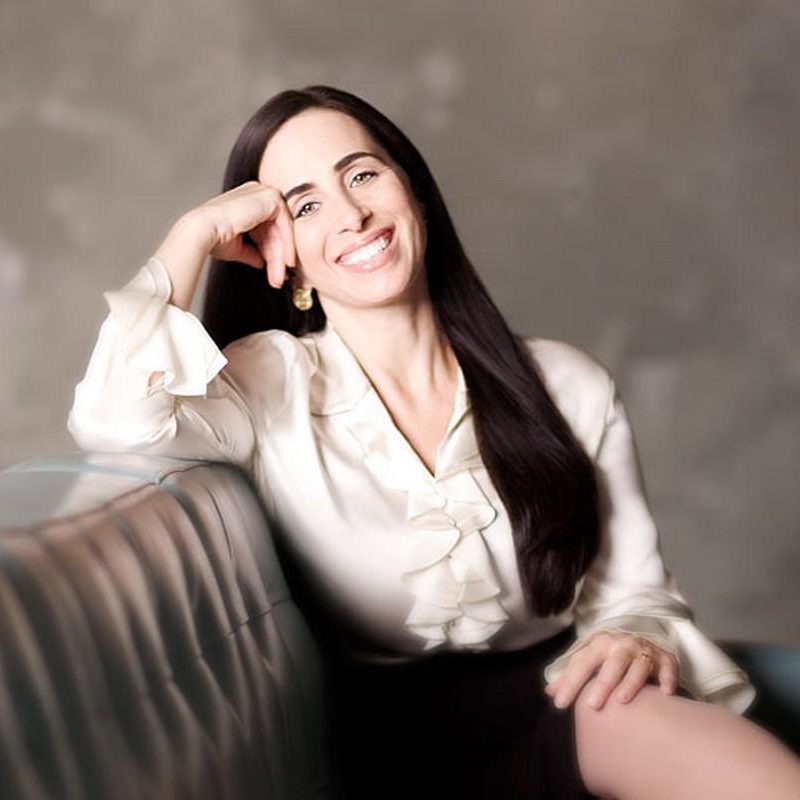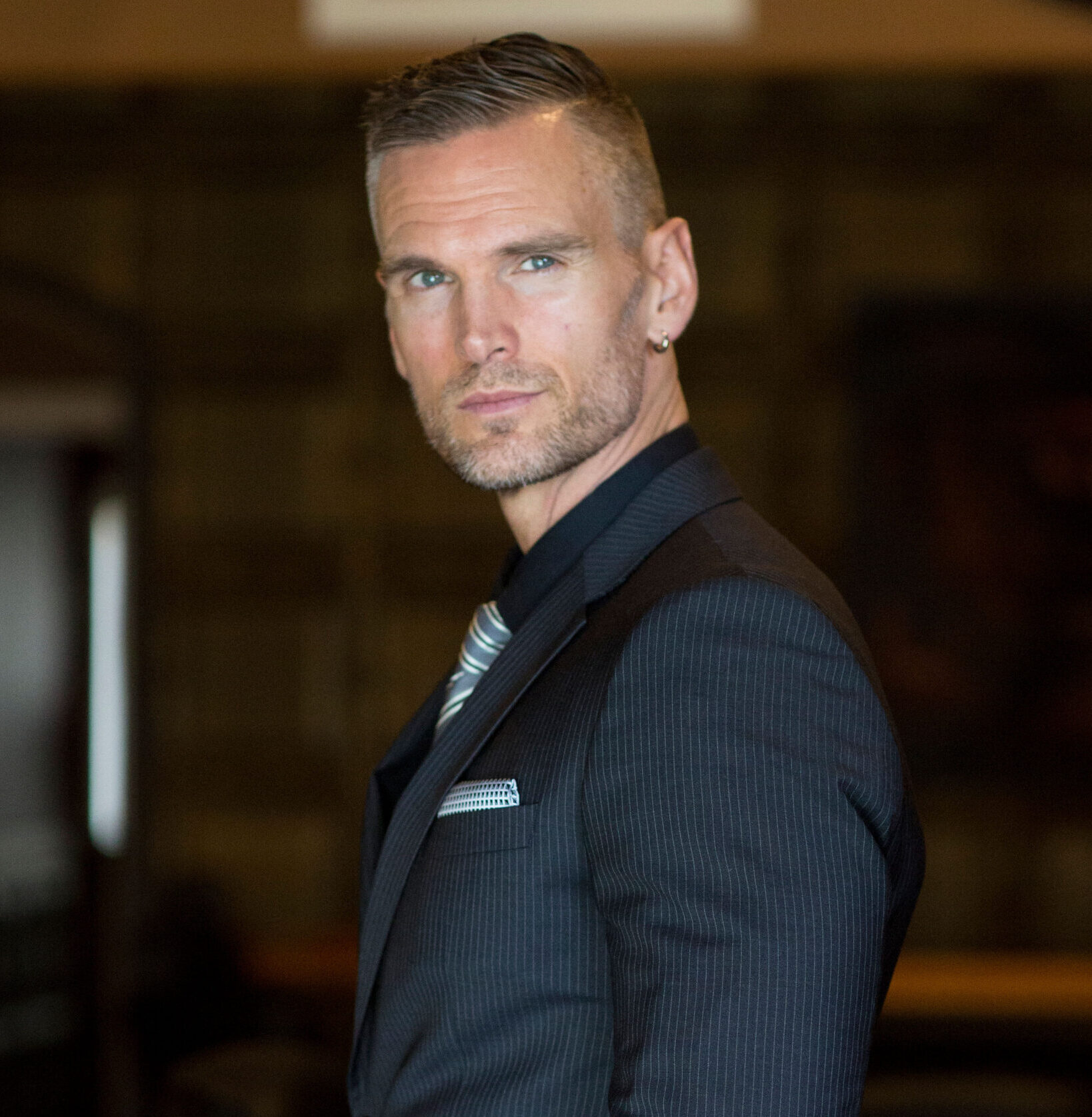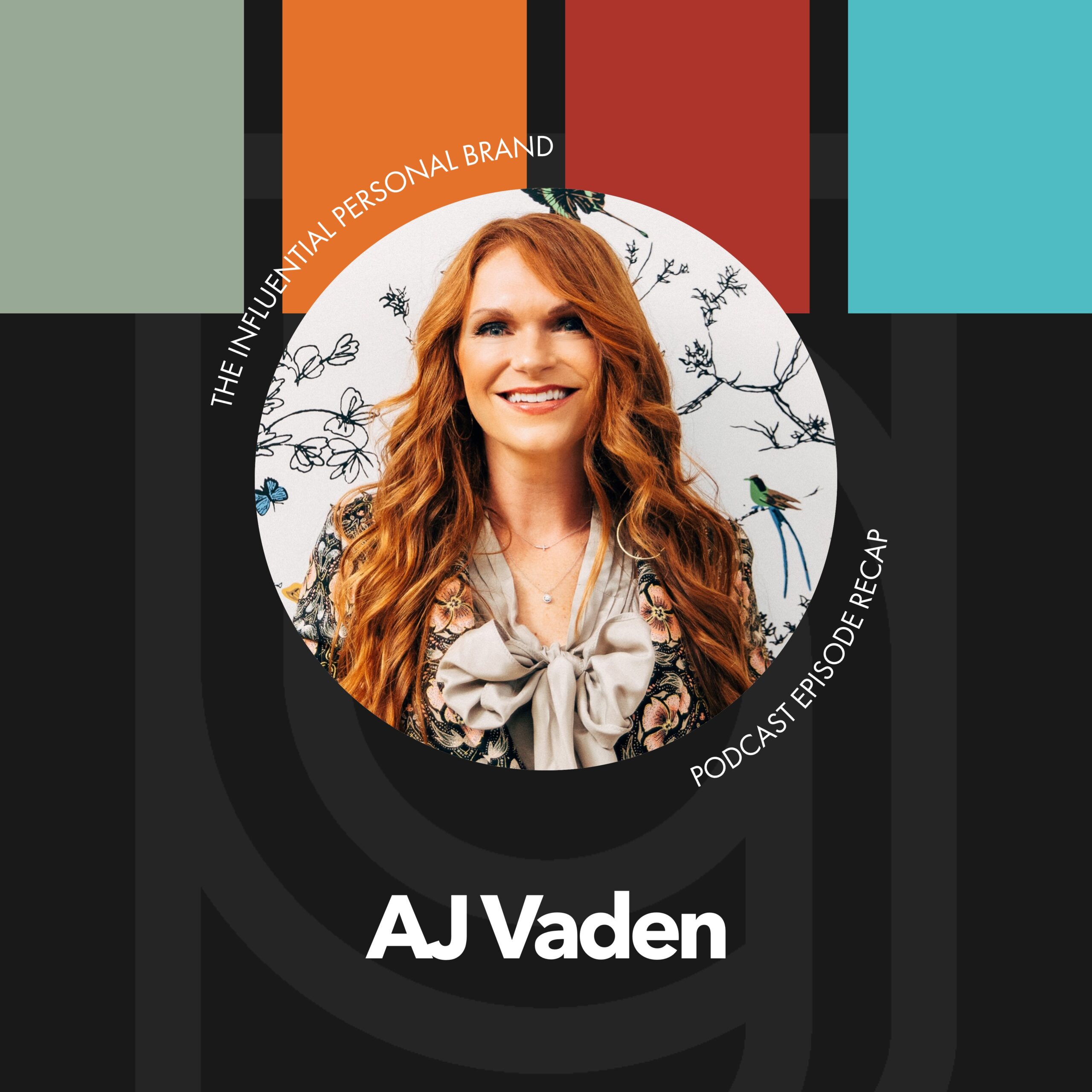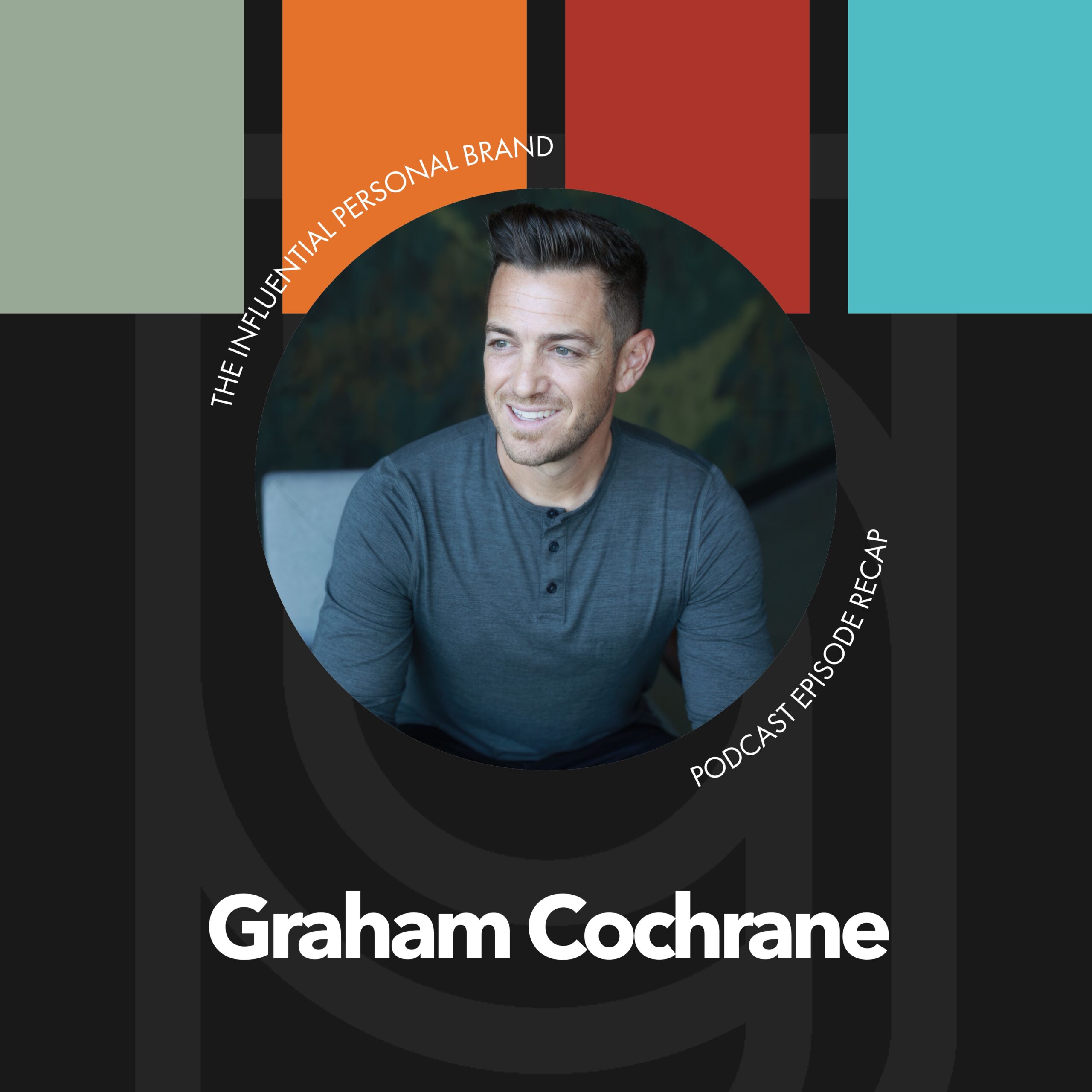RV (00:07):
You friends that I have that are scary, smart, super intelligent Juliet Funt is one of those friends I’ve known her for years, basically met her as a kid running around at the national speakers association when I was like in my early twenties. And she is one of the best speakers in the world. And I’ve shared some of the biggest, some of the biggest stages that I’ve ever been on. She has been there too, and we’ve kind of hung out, you know, my second book hung out a little bit in some of her space. She has a concept called white space, which is really about helping people just kind of reclaim their, their strategic pauses and thinking time and giving, giving them the time to sort of have more, a bit of margin and a, a bit of breadth in their daily life, so that we can be more creative and more productive. And so we’ve hung out a little bit in some of those circles and she’s just kind of an expert on, you know, managing all this busy-ness and overwhelm. And she got a great book deal. I’ll leave it at that. She got a very wonderful book deal with a major publisher, which we maybe we’ll talk a little bit about some, because she’s fresh done with turning in the manuscript for a real massive project. And anyways, Juliet, it’s great to have you welcome back
JF (01:29):
To I’m so thrilled to be here.
RV (01:31):
Yeah. So the new book is called a minute to think it is, and we all need to us talk to us about what is white space submitted to think what, what is all of this? And, and why does it matter?
JF (01:45):
The, there is this need for oxygen in the system of our days, and we needed it before the pandemic, but boy, howdy. I can’t even imagine a time in history that we needed it more. And that, that oxygen is really the foundational metaphor. It’s kind of, if you imagine you’re building a fire and you took paper and pine needles and logs, and you stack them all up and you tried to light it, nothing would happen. But if you added one critical ingredient of space, everything would beautifully ignite. And we are the same in our work is the same. And our creativity is the same. And yet we don’t have that oxygen. There’s no oxygen to feed the fire.
RV (02:21):
Mm. That is such a beautiful, distinct, sharp, accurate metaphor. There’s just, there’s no space. I mean, in the concept white space, of course, you’re referring to like calendar eyes, like you’re talking about counter space, everything is crammed together. And, and it feels like, especially with COVID like you used to like walk down the hall to a meeting and at least have 10 seconds to like walk down the hall to the next meeting. And now it’s like one zoom is over and the next zoom is starting. There’s like, literally not a breath right before we’re just running to the next thing.
JF (02:57):
The tactic we’ve discussed is if you can’t get a bio break, you just wait for a really chatty person and then you can mute P and returned before they, before you, you have to double check the mute, but that’s sometimes the only respite to get to get a second. And it’s so inhumane to begin with, but it’s also so unproductive. It’s so unproductive to take people that you’ve worked to find and hire and head hunt in these genius pieces of talent, and then put them in a deoxygenated environment where they’re just going to shrivel. It’s a, it’s a lot.
RV (03:28):
I mean, so why is that? Like, why, why is it so unproductive? I mean, a lot of the people listening are pretty hard driving, you know, entrepreneurs, solopreneurs practitioners. Is that really true? I mean, I don’t know that everyone takes that as truth to go, like, you know, maximize every second of every day. And it’s kind of like some of, some of us, that’s kind of how we got to where we are. Right. And so you’re saying, well, Hey, you should, you know but I think the oxygen metaphor is so good, but like, I guess what, what gives you so much confidence or like to go like, Hey, that’s not actually productive. Like at some point that caps out,
JF (04:09):
First of all, we can look into, I know you have a lot of entrepreneurs, solopreneurs authors, writers authors, speakers, but first you, if you start with the corporate heck a heck hole, if there’s a appropriate way to say that, of course work that there, there, there is the easiest place to quantify the problem. So when you ask employees, what part of their work feels wasteful and meaningless, and like, it’s just a drain on their entire lives. They will report 20 to 30% of the tasks that they touch are stupid. And if you take those 20 to 30% of those illogical, unnecessary nonsense tasks, and you quantify them based on the salary value of that human being per hour, you can actually come up with a distinct number. It’s a million dollars for every 50 people annually is spent on work that has no value.
RV (04:57):
Whoa, say that again?
JF (05:00):
Yeah. I’ll give you even a visual. It’s a million for $51 million for every 50 employees. But that means, think of it as if you took 12 out of every 50 people and just let them eat Doritos and play video games all day long. And that was their entire contribution. That’s the level of waste.
RV (05:15):
That’s the job that I want right there. Retos and play videos and the crash. Yeah. The rest of you suckers are cranking out the work and getting stuff done. 12 out of 50 people just not doing anything
JF (05:30):
So that, and that wasteful that willingness to let that much waste in the system comes from the fact that we worship activity and not productivity, and that they are two different things that just because we’re moving and checking boxes and doing doesn’t mean we’re actually producing, building, creating something of value. So that common misperception is the seat of the corporate example. Then you move to all of us, the speakers, the the people who are just working it, yes, we have to work incredibly hard to get where we’re going. But little sips of thoughtful time are necessary to make sure that we’re not working. Blisteringly hard in the wrong direction. In order to, if you take a moment to reflect on where you’d like to go, what’s your highest value? What is the most important thing that I can touch next? These critical junctures of thoughtfulness change the nature and the trajectory of the work that you do do so that it’s not just mania heading in any direction that you, that your head that you’re pointed.
RV (06:28):
And I think that’s actually a pretty accurate description of personal brands. It’s kind of mania, right? It’s like, I’m on Instagram, I’m on Snapchat. I’m doing my podcast. I’m like trying to do a speaking gig. I’m working on a webinar, I’m building a funnel, I’m writing email copy. I’m doing my group, my, my graphic design. I’m updating my press kit, like, right. Like, and, and, and so are you saying to work less, like, is that the, is that the goal here is to, is to do less work less?
JF (06:58):
No. For, for those corporate people I’m talking about, we want to remove that wasteful work, but I’m not talking specifically about working less. Although I do think that there are fascinating framings being put out now by people like Michael Hyatt, who’s entire giant teams on a six hour day and finding it exactly as effective as an eight hour day was. So there, there are interesting people playing in the work less space, but that’s not what I’m saying. I’m saying that without the ability to pause in between the activities of what you do, you can’t oxygenate those efforts correctly. So let me, let me walk you through what it looks like in real life. When you finish writing the pot there, script for your blog, and then you’re going to move to checking your new headshots. And then you’re going to check to w oh, your Instagram feed.
JF (07:42):
If you’re jumping from one to the other, to the other, you don’t have time to do a few things. There’s no time to digest the lessons or reflections from what you just did. And there’s no time to plan appropriately to be spectacularly. Excellent. In the next thing that you pick up, there’s no time to shift your mind from human being interactive on Monaco mode to deep creative work mode. When we don’t have transition time. And the, those little spaces open up the day and they infuse it with thoughtfulness, creativity, purposefulness, they allow us to catch ourselves before mistakes, like answering too fast to an email or responding too fast to a question. This habit of thoughtfulness, interlaced affects everything.
RV (08:27):
Yeah. So you’re not this isn’t like a, you know, take a six month sabbatical yoga retreat every year. And like, do that really? You’re saying thought, I love that, that last phrase, you said thoughtfulness interlaced throughout the day. You know, and I was thinking about it makes the first thing that came to my mind was that, so a brand builders group, we’re a classic example of this. Like we started growing really fast, got a marketing team. And then the marketing team went off in a thousand directions and everyone started doing stuff. We literally got less results with like 20 people in marketing than we used to get with two. Because everyone was like, they just start, they were just competing for, they were just competing for priorities. Nothing was actually going forward. It was all like going sideways. And then we’re like, okay, we’re going to do one launch a month. There’s only one thing that we do every month. Because even if you only do one thing a month, you’re not actually doing one thing a month, you’re doing that thing. But you’re optimizing the thing that you did the month before. And you’re preparing for the thing that is coming next. And we had no space and time before that, cause it was just a constant like race. And you’re saying that happens all the time, low value,
JF (09:51):
Quantity work. If you think of that phrase, it’s not something that you want to be producing as a company, but many of us are generating low value, quantity work. And one of my favorite metaphors for this as if I, I spoke to a mole scientist once who studies moles, little, the little burying kind of critter, and what they do in mole land is they don’t have any specific direction that they dig, but they dig very, very fervently for the entire day. So they just put their little paws up and they just go in any direction. They happen to be digging and then they give it their all. And they really work hard all day long, but that’s, we don’t want to be moles. We don’t want to be randomly going in any direction. We want to be purposeful and thoughtful. So it just a minute ago, you and I were talking in prep about I’m four weeks away from book launch, the craziest starting, the, the opportunities are raining down.
JF (10:45):
Should I be writing to clients? Should I be on podcasts, should be, I’d be writing special print media. And I took a minute and we got slow. And we said, what? I said, what is the one thing? What are the two or three things? And just that deceleration will kick in your own wisdom. It’s just a matter of getting off the speed for a minute to say, oh right, wait a minute. I’m just realizing that I just prepped 400 emails on a project that I’m not really invested in, but I’m just getting off on the sending, sending, sending, sending, sending. And if we take a minute to think before that you can avert all that work.
RV (11:22):
Yeah. I wonder how much of it is like, it’s really weird. There’s like because on the one hand it’s overwhelming and exhausting and daunting and all of those things. But on the other hand, it’s almost like we do this busy-ness as a defense mechanism from having to like stop and really go is what I’m doing really matter. Is this really smart? Do I really even enjoy the thing that I’m doing? And it, it feels like we do that. It’s almost like we’re addicted to moving fast. Cause it like prevents us from having to sit with our thoughts
JF (12:03):
And deep work is really scary. So the Cal Newport style deep work where we go in and we create things that are like one gorgeous piece of sushi. That’s sitting on a platter that’s so rich and so flavorful that you don’t need anything with it. That that’s just spectacular. That kind of work to produce tight. Gorgeous, rich work is really hard. And it’s really lonely. If you’re into any degree in extroverted person, you like relational tasks, I write to you and marketing writes to me and sales writes to marketing and I chat with you and I’m on zoom with you. So all of that relational stuff, factors in to what we miss when we try, try to slow things down and do quieter work. So there are a lot of addictive and habitual and adrenaline based reasons that we avoid it. But sometimes that’s where the gold is.
RV (12:54):
Talk to me about that when it comes to writing your book, because this is the world that you’ve been living in here for the last several months is like you go from being this incredibly successful speaker and you got this training company and you’re working with major companies. And you know, like when I’d say I’ll Dulia to speaking at events, I mean, she’s, she’s doing events where there’s 10,000 people in the room. There’s there’s 85,000, a hundred half a million people watching live 7,500 in a room, 30,000 watching on a live stream, a big time stuff. You go from doing all that to be like, Hey, your manuscript’s due in four months. And now you are, this is that’s exactly what you just went through, right? Like how was that experience for you?
JF (13:40):
That’s why I didn’t write a book for 20 years because know, being alone. I don’t like that. Just me and the empty word document is a terrifying place. I will clean the kitchen. I will check social. I will research orthodontic things that my children need. I’ll do anything to try to avoid being in that scary, lonely place of just me and the paper. But the way that it worked for me was when the moment was ready, the right agent and the right message and it all kind of crystallized. And then I had to figure out what the writing process was going to be for an extroverted person who was scared of the quiet. And what worked for me was always writing on retreat. My writing style was that for a year and a half, I went away one day a week and wrote, and there was no email, no children, no husband, no same environment, nothing I’d go to a hotel or I’d go somewhere else. And I would be alone with the book and that kind of compartmentalization has always worked really wonderfully for me. And it worked really, really well for this.
RV (14:45):
So, so I want to talk about the editing process. So I love that and I, I right. The same way except both of my books I wrote in a week. So I do it. I just, I like disappear from the world for like seven days. And just, it’s like a, it’s like a what do they call it? When you like binge like a ranger, like a bender, it’s like a binder. It’s like a writing bender that and, and cause it’s the same way. It’s like the only way I can really like get focused is to like be, you know, just to remove from everything. But then you actually get the book written and people are always, people are always off when they talk to me because they’re like, I just got my, I just finished my manuscript and I go, congratulations.
RV (15:35):
You’re 20% of the way done from having an hour towards having that actual book. Oh, so true. They’re so mad at because it’s like, I think writing is one of those things you can hear. It’s you know, Mitch Hedberg used to describe pancake. Do you know who Mitch Hedberg is? No. Oh my gosh. He’s one of my favorite comedians. He died of a drug overdose, which is sad, but he was really brilliant. And he used to say, it’s like pancakes at the beginning, they’re all warm and fluffy. And then by the end, you’re just fricking sick of them, like writing the same way. Like you’re like, oh, this is so exciting. I’m writing my book. And then, and then it’s just like, then you have to edit. And you’re like, I’m so sick of this. I want to read. So talk to you about the
JF (16:23):
Editing. How about when you’re done, I’ll go back to that. But how about when you’re done editing and you finally get done with these sticky cold pancakes and then they go now, the next year of your life is going to be being on podcasts, repeating back the same pancakes for the rest of your career. It’s very difficult. The funny thing about the editing process was how unprepared underprepared I was for what exactly was going to happen. So I’m with a major publisher. Okay.
RV (16:49):
For the editing pro you were under prepared for the editing process
JF (16:53):
Completely because so Harper Collins is our publisher. I have a wonderful, wonderful publisher named Hollis. And on the day of January 1st, when we turned in the book, we had a party because the book was dead and I turned it in. It was finished. And then they send back around about a month later and you sit down and go, oh my God, there’s two days of work in copy editing and checking all this stuff in this round to read it again. And then you send back all those changes. Then they send back another round over the course of three or four months. They sent back round after round on the third round, after being on retreat, intensely editing round one and round two of what I thought was a completed manuscript. I sent back 290 changes on the third round. So some of that is just my own perfectionistic tendencies and how much I care about this particular book, being a spectacularly unique and beautiful book, but it’s not done when you think it’s done.
JF (17:45):
You think it’s done when you turn it in? It, it isn’t even done until the day that the printers rip it out of their hands and say, we have to have this now, or we’re going to miss the deadline. You just keep tweaking it. And then as I told you, before smart people start to say things that you wish you’d written in it, and now it’s finished and you go, oh my gosh. If I just had that conversation with Joel, before we locked the manuscript, I would have completely changed a, B or C. And I’m prepared for that to just keep going.
RV (18:14):
I mean, this is, what’s crazy too about a book, right? Is like, you go through this, you know, and it’s, it’s a lifetime to build a platform. Then you give a proposal, you get an agent, you get a deal, you do the manuscript. There’s 75,000 edits. Then you’re just exhausted. Like you ran a hundred mile race and they’re like, congratulations. You’ve reached the starting line, which is now you’re going to do your book promotion for the next eight, eight months. And then at the end of it, all you sell the thing for $22 and 50 95 cents. Meanwhile, you could throw your iPhone on record a video course and sell it for 500 bucks by this afternoon. And that’s, but that’s what I think makes books so beautiful and still so relevant and so important. It’s it’s the work that you do. It’s the, the amount of space and oxygen that, that went into building this beautiful thing and over and over and refining it.
JF (19:09):
It’s a lot of great things. I mean, it is a, if you got a decent advance, you’re going to be very old and gray before you even see a dollar of that 22. So that’s another thing is this is the most free work I’ve ever done in my career over the last three, three years on this book. But the beautiful thing about writing a book is it takes content that is in a raw form and it causes you to sit with that content and tweak it and play with it and marinated and step away from it and come back to it. And the end of it, you open it up almost as if you hadn’t been part of the process and you say, this is wonderful. And it, it comes to fruition like a child growing into him, you know, like a boy growing into a man there’s this day where you look at and go, wow, I have goosebumps right now telling you the story of getting goosebumps about looking at it, because you think now it’s ready. It works. It’s clean, it’s easy. Maybe it’s enjoyable. And wow. It came together and that’s, that’s a Mo the most thrilling, creative process that I’ve ever been involved in. And that has nothing to do with whether it’s sells or makes me famous or makes a dollar from here.
JF (20:16):
And this,
RV (20:18):
Everything you just described, the beauty of that, which we’ve in the context of this conversation, been talking about in these, what we would call and take the stairs harvest season of focus, but it’s almost like white space in a minute to think it’s almost like you get a little bit of that in everything you do. If you just breathe for a second, you kind of infuse that same level of creativity, wonder and innovation into your entire day. Just like little bits of it. Time,
JF (20:54):
If you have the habit of the pause inside your bones, what happens is that it naturally shows up for you without trying. So on those writing days, I would write or edit for 12 hours. But if I happen to catch out of the corner of my eye, a pretty sunset while I was writing, or if I happened to notice that my hands were really enjoying the warmth of my tea cup while I was holding it, it would be second nature for me to pause and go with that, go with that for a minute. If I was writing and I had a little grain of an idea in some critical voice at all, that’s silly or not worth it. My habit of the pause would tell me to stop and hang with it for a minute before dismissing it. And so what happens is once the pause becomes your practice, it comes to you naturally like breathing and you get the sense of pausing going, going pausing. I definitely believe that there are harvest seasons. I believe that balance is like the stock market and, and it goes up and it goes down. And right now I’m in a book launch. And not as balanced as I am in other times, but if you can think of it as an interlacing, just a beautiful sign curve of go stop, go stop, go stop. I believe that you’ll be stronger, longer and better in the work that you do.
RV (22:08):
That is marvelous. So w the, book’s called a minute to think where do you want people to go to read about it? Find out about it, connect with you,
JF (22:19):
Juliet funt.com is where you can get the book. Hopefully that you’ll share with your team, because we have a very, very strong impetus for people to discuss this work together. So it comes to life. When you say, I think, what do you think about this? And how can you apply it and what feels safe in the world of busy-ness to take pauses? It’s a wonderful thing. And they’re, they can also take something called the busy-ness test, which is a quiz that any of your listeners can go to to understand where are the most pernicious thieves of their own time, and where do they come from and how they can stop them uniquely for them?
RV (22:51):
Love it. Well, we’ll link up to Juliet funt.com and also the book a minute to think it is called, check it out, profound, powerful, insightful both accelerating and decelerating to your life at the same time. Really, really a magic Joel. I’ve read through the entire manuscript. I absolutely love it. Fully endorsed this book, check it out. Juliet, thank you for making time for us. And we wish you the best. Always. Great. Thanks.













